It’s been a frustrating year for anyone who loves to travel. Throughout 2021, the risk of catching COVID-19 in another country, combined with strict quarantine requirements for those returning to Taiwan, deterred all but a few people from traveling overseas for fun. And just as Taiwanese were beginning to make plans for the summer, a domestic outbreak forced the government to raise the epidemic alert to level 3.
The situation is now much better. Taiwanese are once again able to enjoy all sorts of leisure activities. Night markets are crowded and tour groups have been making good use of the cooler months.
To find out where some of Taiwan’s most eager travelers aim to go next year — their New Year’s sightseeing resolutions, as it were — I spoke with three people who have strong personal and professional interests in tourism.
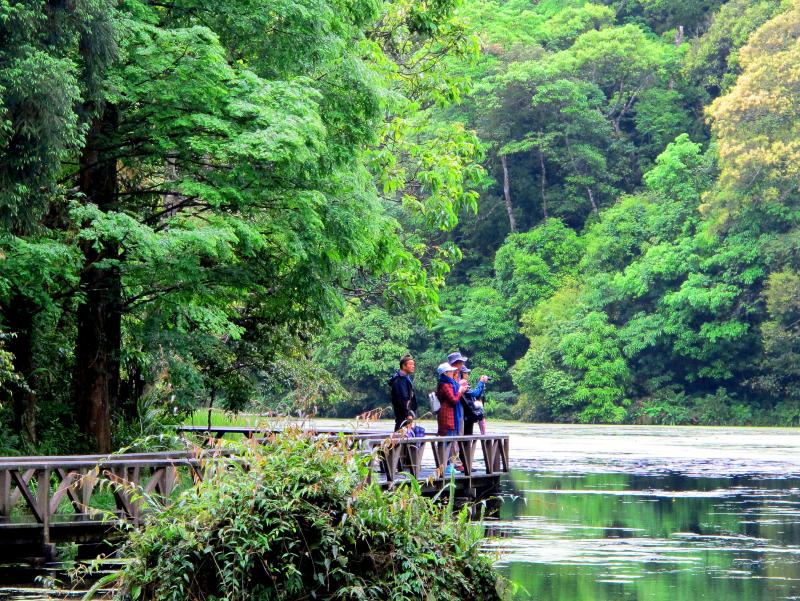
Photo: Steven Crook
REGENERATIVE EXPERIENCES
Stressing the health benefits of spending unhurried time outdoors, Michael McCreesh, who teaches tourism part-time at Ming Chuan University, says that he’s going to prioritize high-quality regenerative experiences next year.
“I love the vibe in big cities, but I need to recharge, and I can do that best in nature, with family or friends. Scientists have found that the neurological benefits include improved cognitive thinking and greater creativity. It lowers your blood pressure, too,” says the Canadian, who’s also studying for a PhD in recreational ecology at National Taiwan University.
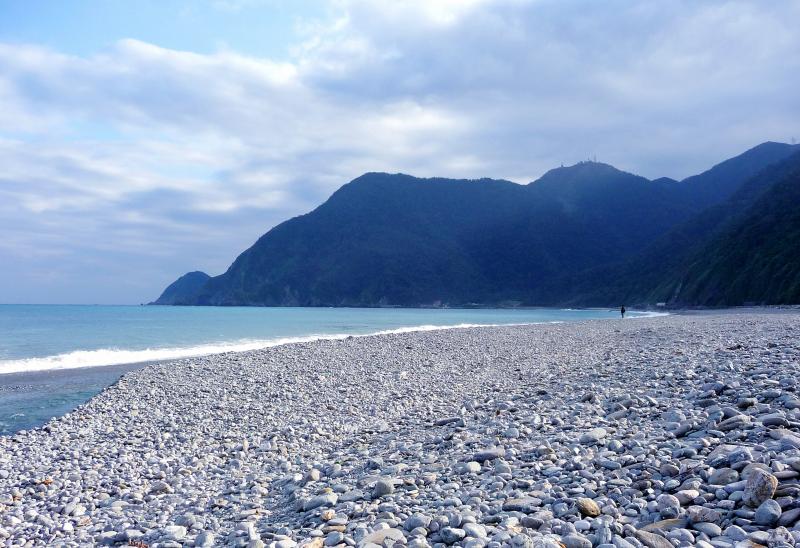
Photo: Steven Crook
Fushan Botanical Garden (福山植物園) tops McCreesh’s list of places he hopes to visit next year. Located in New Taipei City’s Wulai District (烏來), but only accessible via Yilan County’s Yuanshan Township (員山), the botanical garden hosts an exceptional variety of animals, insects, plants and trees.
McCreesh says that he hasn’t yet been to Fushan Botanical Garden — which is managed by the Taiwan Forestry Research Institute — because visits must be arranged at least 35 days in advance, and no public transportation goes near the garden. Admission is free, but there’s a strict limit on visitor numbers.
He also wants to spend some time at Tataka (塔塔加), an ecologically rich part of Yushan National Park that can be accessed by Provincial Highway 18 or Provincial Highway 21. Given his children’s ages (seven and five), trips deeper into the mountains aren’t currently a realistic option, he says.
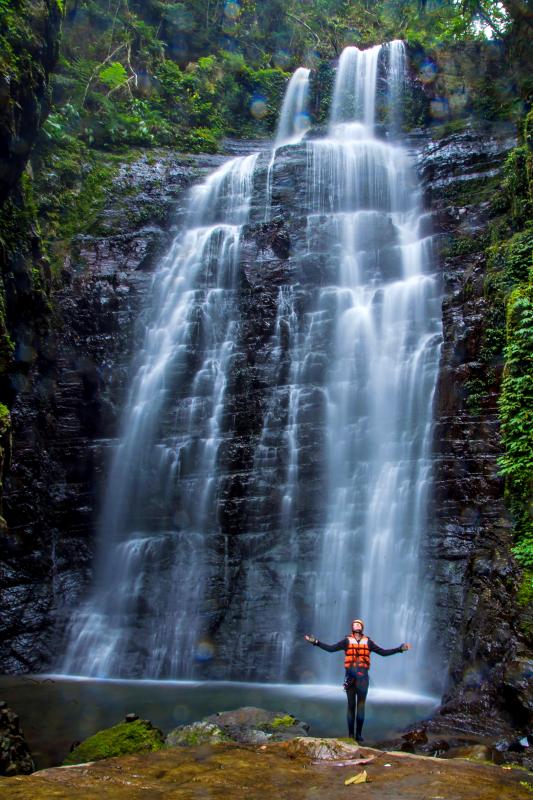
Photo courtesy of Johannes Twellman
McCreesh says that in the aftermath of the pandemic, there may be a shift in the style of tourism. International travel is likely to be more expensive, he says. People may end up taking fewer but longer trips, which at least would reduce the carbon emissions associated with air travel and long road trips.
“If people can take the time to get to know a place, and experience it at a human level, perhaps by meeting and learning from local artisans, tourism is less likely to be destructive, and can actually enhance the health of that destination,” McCreesh says. Two ventures he’s involved in, ParkBus and Origin Wild, reflect this ethos.
WILDLIFE WATCHING
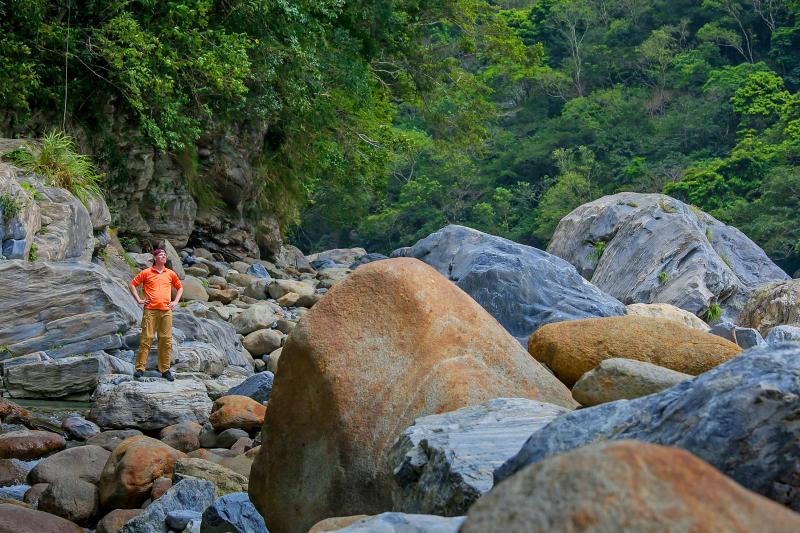
Photo courtesy of Johannes Twellman
Victor Yu (余維道), president of Ecotourism Taiwan (台灣生態旅行促進會) and a member of the World Birdfairs Council, describes his goals for next year as “not too ambitious.”
He’d planned to go birding in Bhutan in March, but it’s looking less likely that he can go. For June, he has a trip to Ecuador and the Galapagos Island penciled in.
“Fingers crossed for that,” he says.
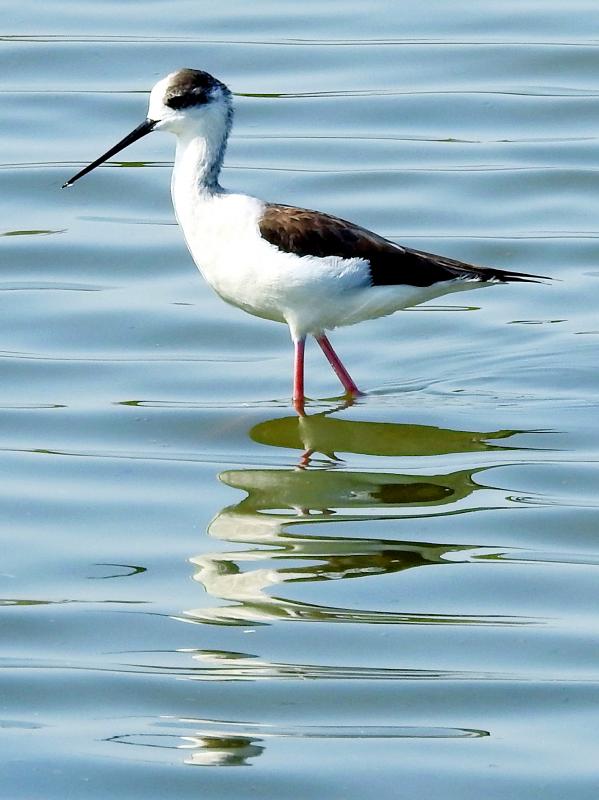
Photo: Steven Crook
In January, Yu is set to go birdwatching in Kinmen. After that, he’ll spend some time in Sun Link Sea Forest Recreation Area (杉林溪森林生態渡假園區) enjoying the sight of mountain-dwelling birds moving among cherry blossom.
But Yu’s top domestic objective for the coming year is the southwestern coast in the middle of August, especially Wangliao (網寮) in Chiayi County’s Dongshih Township (東石鄉) and Sidiliao (溪底寮) in Tainan’s Beimen District (北門).
“I want to see wading birds like the curlew sandpiper, dunlin, red-necked stint, red knot and black-tailed godwit — and, if I am lucky enough, the ruff — and get some good photos of them. I’ll be very happy if I can see some of those waders when they’re in their stunning breeding plumage.”
TAKING IT SLOW
Johannes Twellmann, a German who’s lived in New Taipei City for the past 20-odd years, is editor-in-chief of Travel in Taiwan, the official English-language magazine of the Taiwan Tourism Bureau.
The job entails frequent trips to different parts of Taiwan. During those excursions, Twellmann — who’s long been interested in photography — also shoots videos which he uploads to both YouTube and taiwaneverything.cc, a Web site owned by the company that publishes Travel in Taiwan.
“Because of my work, revisiting the same places is unavoidable, but surprisingly traveling in Taiwan never gets old for me,” he says.
Twellmann says that he’s always been keen to avoid places where tour buses are parked outside, or where he has to wait in line. He’d much rather spend his free time in a forest, or doing hikes “that are less about conquering peaks and more about exploring what’s beside the trails,” he says.
“I’d love to do more slow walks, taking in nature without hurrying, sitting down and composing photographs or videos, waiting for wildlife — that kind of thing strongly appeals to me,” Twellmann says.
Walking isn’t the only mode of transportation that appeals to Twellmann. He does a lot of YouBiking, and he confesses to an interest in flying: “Ultralight planes, hot-air balloons, paragliding: I’d like to try all of those.”
Despite having seen more of the country than many people who were born and raised in Taiwan, there are several places Twellmann still hasn’t yet been to, but would like to visit. Among them are Keelung Islet (基隆嶼), Turtle Island (龜山島), and some of the smaller islands in Penghu County.
“I love sparsely populated places that aren’t of interest to regular tourists,” he says. “I’d love to do more camping in natural surroundings, and search for treasure on secluded beaches. That’d be perfect!”
Steven Crook has been writing about travel, culture and business in Taiwan since 1996. He is the author of Taiwan: The Bradt Travel Guide and co-author of A Culinary History of Taipei: Beyond Pork and Ponlai.

The primaries for this year’s nine-in-one local elections in November began early in this election cycle, starting last autumn. The local press has been full of tales of intrigue, betrayal, infighting and drama going back to the summer of 2024. This is not widely covered in the English-language press, and the nine-in-one elections are not well understood. The nine-in-one elections refer to the nine levels of local governments that go to the ballot, from the neighborhood and village borough chief level on up to the city mayor and county commissioner level. The main focus is on the 22 special municipality

The People’s Republic of China (PRC) invaded Vietnam in 1979, following a year of increasingly tense relations between the two states. Beijing viewed Vietnam’s close relations with Soviet Russia as a threat. One of the pretexts it used was the alleged mistreatment of the ethnic Chinese in Vietnam. Tension between the ethnic Chinese and governments in Vietnam had been ongoing for decades. The French used to play off the Vietnamese against the Chinese as a divide-and-rule strategy. The Saigon government in 1956 compelled all Vietnam-born Chinese to adopt Vietnamese citizenship. It also banned them from 11 trades they had previously

In the 2010s, the Communist Party of China (CCP) began cracking down on Christian churches. Media reports said at the time that various versions of Protestant Christianity were likely the fastest growing religions in the People’s Republic of China (PRC). The crackdown was part of a campaign that in turn was part of a larger movement to bring religion under party control. For the Protestant churches, “the government’s aim has been to force all churches into the state-controlled organization,” according to a 2023 article in Christianity Today. That piece was centered on Wang Yi (王怡), the fiery, charismatic pastor of the

Hsu Pu-liao (許不了) never lived to see the premiere of his most successful film, The Clown and the Swan (小丑與天鵝, 1985). The movie, which starred Hsu, the “Taiwanese Charlie Chaplin,” outgrossed Jackie Chan’s Heart of Dragon (龍的心), earning NT$9.2 million at the local box office. Forty years after its premiere, the film has become the Taiwan Film and Audiovisual Institute’s (TFAI) 100th restoration. “It is the only one of Hsu’s films whose original negative survived,” says director Kevin Chu (朱延平), one of Taiwan’s most commercially successful